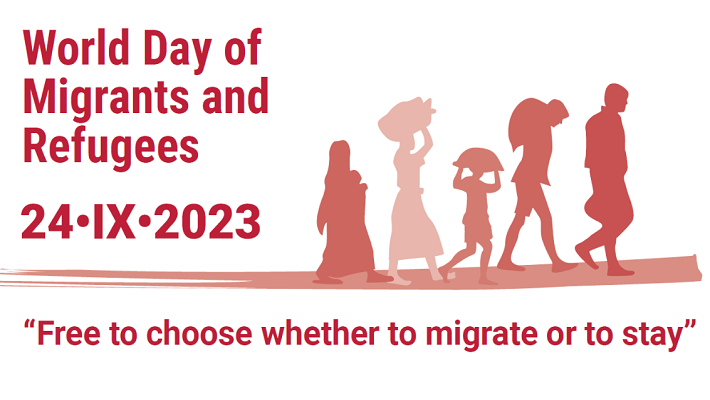By Arnold Neliba
HARARE, SEPTEMBER 22, 2023 (CISA)-Ahead of the 109th World Day of Migrants and Refugees on September 24, 2023, Archbishop Alex Thomas Kaliyanil SVD, Chairman of Commission for Migrants and Refugees of Zimbabwe Conference of Catholic Bishops (ZCCB) has called for the inclusion of local authorities in handling migrant related issues.
Reflecting on this year’s theme picked by Pope Francis “Free to choose whether to migrate or to stay,” the archbishop of Bulawayo stressed the need to provide safe places for those already on the move who also have to choose whether to migrate or stay.
“…migrants and refugees have had enough abuses, threats and degrading situations and have lost almost everything, even their dignity, and hence they should be accorded a dignified settlement and a new start within hosting communities,” he said.
According to the archbishop, it is important that “the local authorities be involved in this as well so that the re-integration of such people i s done in accordance with the laws of the hosting country.”
s done in accordance with the laws of the hosting country.”
“In integrating the displaced people, the Church and hosting communities are challenged not to plan for these people, but to involve them in finding a way forward in integrating them and in a way that benefits both communities,” noted the archbishop who maintained that among the migrants are professionals, university students and entrepreneurs who in turn can benefit the hosting communities.
As the church marks the World Day of Migrants and Refugees, Archbishop Kaliyanil has urged communities to be open to those on the move and offer necessary help as Christians where there is a need.
According to Monsignor Robert Vitillo the Secretary General of the International Catholic Migration Commission (ICMC), one way to ensure that forced migration is eliminated in the future is to ensure that decent and dignified work, with just and fair compensation, is available in all parts of the world and to eliminate the exploitative conditions, trafficking of people, and slavery that still is prevalent in so many parts of the world.
“In addition to its strong promotion of advocacy for greater social justice to be put into practice by governments at global, regional, and national levels, ICMC also takes action with its Catholic Church partners at local levels to help workers who have been subjected to unfair employment practices or who were confronted with other challenges in the world of work,” he said while rooting for the need to uplift human dignity through offering training, motivation, and resources for a new start.
“Persecutions, wars, atmospheric phenomena and dire poverty are among the most visible causes of forced migrations today. Migrants flee because of … fear or desperation,” Pope Francis said in his March Message for the 109th Day of Migrants and Refugees, which inspired the choice for this year’s theme.
According to the International Labour Organization (ILO), the search for labour also contributes greatly to the high number of migrants.
ILO reports that 49.6 million people are living in modern slavery today, of which 27.6 million are in forced labour and 22 million in forced marriage.
The data also indicates that of the 27.6 million people in forced labour, 17.3 million are exploited in the private sector; 6.3 million in forced sexual exploitation, and 3.9 million in forced labour imposed by governmental authorities in the countries in which they live. Women and girls account for 4.9 million of those in forced sexual exploitation, and for 6 million of those in forced labour in other economic sectors.
